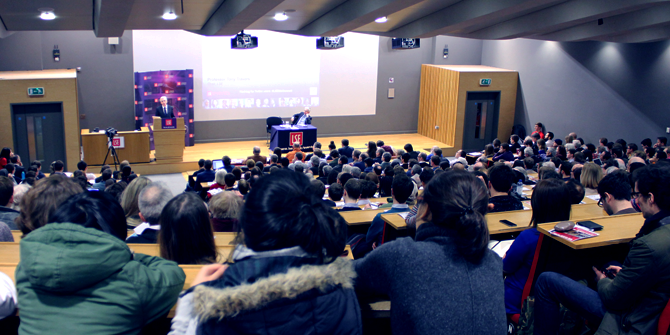Our students and faculty share their thoughts on the recent Brazilian election.
 Ultimately, the main issue appears to be social divisions
Ultimately, the main issue appears to be social divisions
After winning with a small majority, former President Lula will become president of Brazil once again in January 2023 after defeating President Bolsonaro.
The re-election of Lula, amongst many other things, will signify the return of social policies. Under Bolsonaro, we witnessed a shift to market based policies. The public sector suffered heavily with funding cuts, and a remarkable event was the attack on state universities. Bolsonarism created the sense that those institutions were fundamentally leftist and a threat to their key values of Christianity and traditionalism. On the economic aspect, we expect higher expenditure in order to fund said social policies. Lula has recently requested the amplification of the budget, which left those who support a smaller government worried.
A large part of global leaders has embraced Lula’s comeback, as there is the expectation that Brazil will return to international collaboration. We may witness the return of the Amazon Fund and more participation in global, environmental, and sustainable development affairs. A more integrated collaboration with USA and Europe will probably be the signature in the priorities of the agenda.
Yet, ultimately, the main issue appears to be social divisions. The recent election cycle radicalised many voters who believed were doing so for a greater good, with many closing main roads as a protest requesting military intervention. It is important to note that Lula’s win was not comfortable, and he will have to raise consensus both in the Congress and Senate, where the right was voted majority, and on the population, considering that almost 50% of the Brazilian population cannot forget his issues in Court. Many believe that these four years Lula has in power will be used by Bolsonaro to boost his campaign and come back stronger in 2026 (a phenomenon similar to what we expect Trump to do in the 2024 elections). Lula has to be strategic and precise during his government, otherwise we may witness another wave of far-right politics soon.
Marina Martins Perzan is a BSc History and Politics student at LSE, she was born and raised in Northern Brazil.
There are three key lessons from the presidential election
One: Bolsonaro lost, but performed very well. Bolsonaro’s performance, forcing a second round in which he lost by a razor-thin margin may have lasting repercussions for Brazilian politics. Perhaps most importantly, “bolsonarismo” did very well in crucial Congress races and subnational elections, which warrantees the outgoing president will continue to be pivotal after his term ends.
Two: Dealing with democratic backsliding. One of the key concerns before the election was whether Bolsonaro would accept defeat if the results were close. Fears of widespread civil unrest were put to rest relatively soon after the preliminary results. Two key factors influencing this result are worth mentioning. First, Bolsonaro seems to be a victim of his own success: the winners of pivotal districts and Congress seats aligned with the seating president were less enthusiastic about disallowing elections that hailed them as victors. Second, the expedient acknowledgement of the results by the international community contributed to legitimising the contested results. The combination of electoral success in a fair contest and international pressure seems to have worked against the destabilizing aims of the seating president.
Three: Challenges for the new government. Lula’s government will face major challenges early on. Bolsonaro’s electoral success amid defeat implies the PT’s leader will have to deal with increasing polarization and powerful rivals. Besides this, Lula approaches his new presidential term with a diverse political and social coalition. This coalition is united by a broad consensus over the need to protect democracy, which likely requires a moderation of demands placed upon the government, moderation that may be hard to achieve as discontent over Bolsonaro’s policies has accumulated in diverse sectors of society. Finally, the current international context will prove different from Lula’s previous run as head of state, when he benefited from the commodity boom windfall. Although the PT proved to be a responsible manager of the Brazilian economy, the slowdown of the international economy will limit the options available to spur growth and redistribution that many expect from Lula’s third term leading Brazil.
Federico Fuchs is an LSE Fellow in the Department of Government, LSE. His research concentrates on the political economy of formal and informal labour markets in the developing world with a regional focus on Latin America.
Note: this article gives the views of the authors, and not the position of the LSE Department of Government, nor of the London School of Economics.
Image credit: Rafaela Biazi






